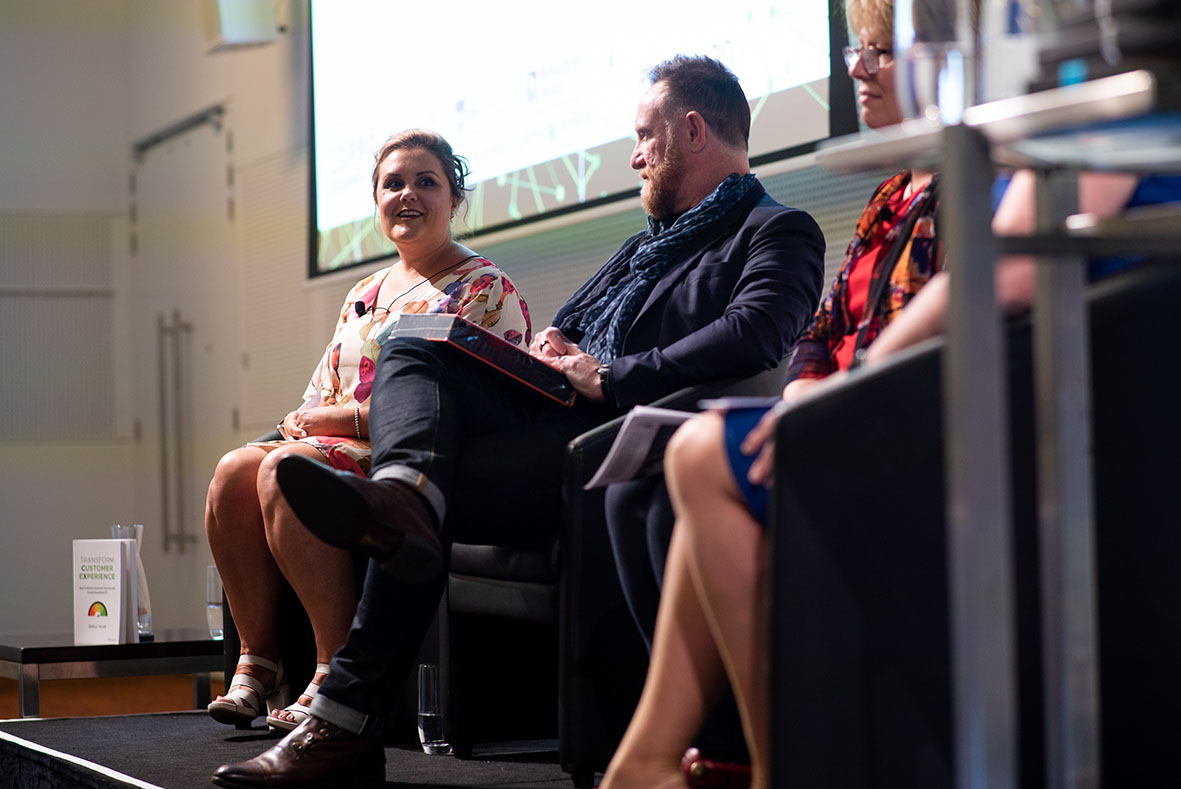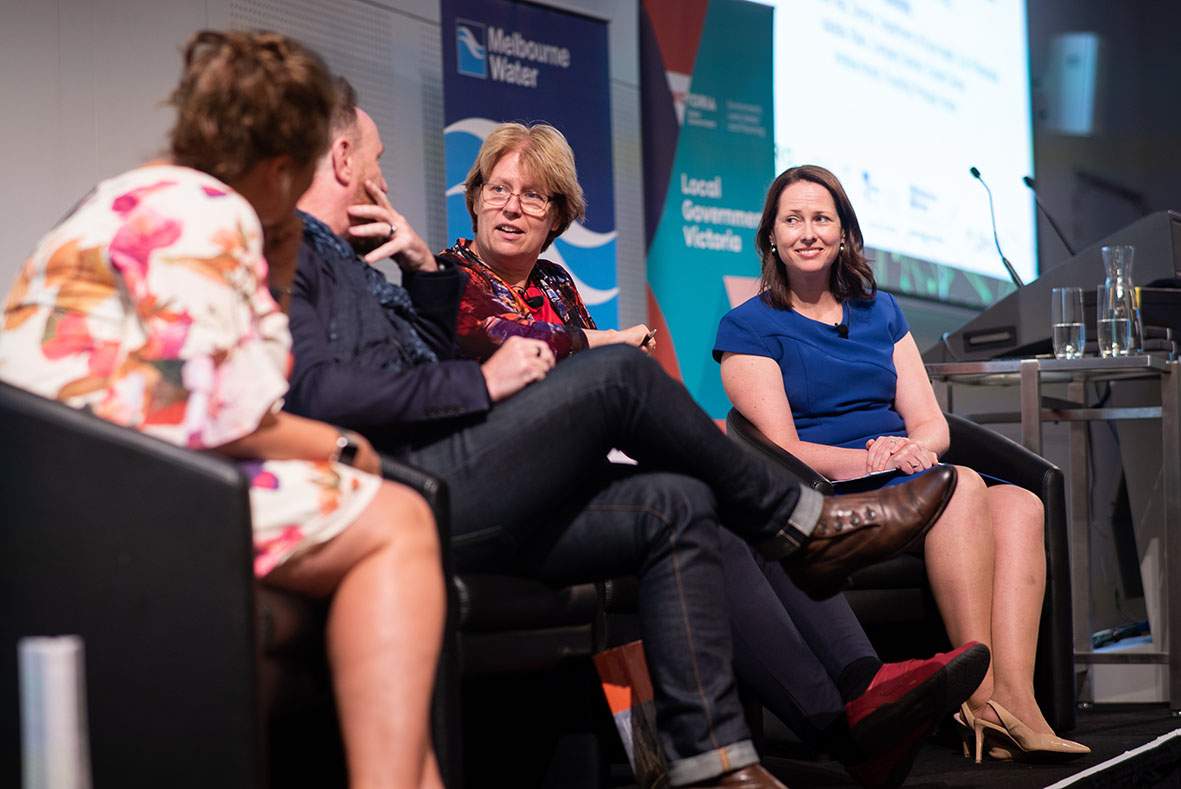
.jpg)

An Outsiders Point of View
As Local Government begins preparing for a period of intense modernisation and reform, here are some suggestions from three industry ‘outsiders’ about what the sector should be doing in order to be future ready.
The comments came from Professor Jennifer May, Director - Department of Rural Health, University of Newcastle and former President of National Rural Health Alliance; customer experience guru, Isabella Villani, Exceed Global, and Andrew Hoyne, Founding Principal of Hoyne. They were speaking at the 2020 LGPro Conference which took place in Melbourne last week.
Topping the list was the need for a more customer-centric approach to service delivery and better use of available data.
According to the speakers, councils now more than ever need to:
• Respond to customer queries in a timely manner – in customer time-frames, not council’s.
• Develop a centralised database on customers. This would document all conversations with customers and other key touch points, saving customers from having to repeat themselves or retell their stories each time they call council.
• Create clever, easy-to-use digital communications channels that cut out the need for customers to revert to more traditional channels (phone or face-to-face) out of frustration with clunky, less-robust digital systems.
• Ensure communications channels respond to community demographics. With our rapidly aging population and in populations where English is not a first language, councils need to ensure these groups have access to channels that work best for them.
• Create a great company culture that fosters a happy, productive workplace where staff know they can make a genuine difference and have a deep understanding of what good customer experience looks like. If people are unhappy in their jobs, providing great customer service is difficult to deliver on.
• Finally, councils should work closely with their customers when redesigning their communications channels and customer-service touch points, ensuring they closely mirror what their customers want .
web.jpg)
web.jpg)
web.jpg)
Playing well together in the sandpit
Can we get government relationships back on track? Can we work differently to get effective collaboration with all levels of government? These were some of the questions posed to a panel of former politicians, government strategist and university academics at this year’s LGPro Conference which took place in Melbourne last week.
The panel comprised former Deputy Premier of Victoria, John Thwaites, Director Policy and Strategy, Local Government Victoria, Hannah Duncan Jones, McKenzie Research Fellow, Melbourne University, Michael Breen, and Kelvin Thomson, former Federal MP.
Their advice and commentary comes against the backdrop of the Local Government Bill 2019 which is set to come into the law next week.
What is the relationship between the Local and State Governments in Victoria and how can councils lift their profile with State Government?
According to John Thwaites, while there is limited respect for the power of Local Government, there are effective ways that councils that get more out of the relationship.
Among his 10 Commandments for better influencing State Government and securing better outcomes:
• Be absolutely clear about what it is you want and what’s in it for State Government
• Present a solution, not a problem
• Prioritize and be prepared to compromise
• Local Government can better influence an outcome when it collaborates with other councils, business and community groups and does not attempt to go it alone.
What is State Government doing to strengthen relationships with Local?
Hannah Duncan Jones says in addition to the Vic State-Local Government Agreement (which articulates the working relationship between two levels of government) there are a range of policies, processes and programs to help foster a good relationship between the two levels of government.
• In the event of State Government policy changes, there are polices in place that require detailed discussions with Councils should they be impacted by these changes.
• The Ministerial Women’s Roundtable which enables informal and open dialogue between both levels of Government, has achieved great outcomes for council such as the increase in female CEOs which is set to reach 30% representation by March.
• The Ministerial Advisory Panel also provides the opportunity for open dialogue between the Minister for Local Government and councils four times a year. This deals with issues that impact both State and Local Government, a great example being how to better manage recycling waste.
• The Emergency Management Response program, says Hannah, has done much to foster a strong relationship between the two levels of government. The program is focused on understanding councils’ capacity to respond to emergencies and what needs to be done to address any gaps.
Hannah believes Local Government Bill 2019 (which is about ‘resetting the relationship’ between the State and Local Government) will do even more to create goodwill. Rather than the highly prescriptive involvement of the Minister in issues like procurement, councils in future will be free to act in a way that better meets the needs of their communities.
What are the key ingredients for building a better relationship between all three levels of government?
According to Kelvin Thompson while relationships between Local and State can be combative, those between Councils and Federal Government are less so. However even these can be further strengthened by councils:
• Maintaining cordial relationships where possible – ‘better inside the tent than out’.
• Not passing resolutions on things like Manus Island and Australia Day that make Local Government look like ‘it is wanting to run the country’.
• Understanding priorities and being clear about these priorities.
• Initiating round table discussions with local MPs. This has worked to great effect for councils like Brimbank and Moreland.
• Paying a visit to Canberra. These need only occur once during the lifetime of a council.
• Establishing and maintaining local credibility and support on issues such as planning, corruption, rate relief and so on.
What has the tragedy of the summer’s bushfires revealed about relationships across government?
According to John Thwaites, they were hugely co-operative and rightly so given the amount of preparation and planning that went into finessing the role of each in times of emergency.
“If you plan well and set objectives you get great co-operation. Perhaps these lessons can be used for all aspects of government relationships,” he says.
How can Local Government professionals assist their political arm have better conversations with communities?
Kelvin Thompson says council professionals have a key role to play in maintaining relationships with community long-term. To enable this:
• He believes the consultation process could be improved. In addition to meeting with relevant community organisations, he would like to see more effective use of social media.
• He would also like see Councils more involved in issues such as family violence and homelessness.
• Put their energies into the creation of more community hubs.
• Co-operate with other councils when dealing with State Government on key issues affecting the community, providing strength and unity and a much stronger ability to impact the outcome.
Is it good or bad that local council members can hold political party memberships? Would Local Government be more effective if affiliation was not possible?
According to John Thwaites, people working for local government should be allowed to have political party affiliations and endorsements. Barring them would be an infringement on democratic rights. He believes it is dishonest to hide affiliations and it is far better to be open and transparent.